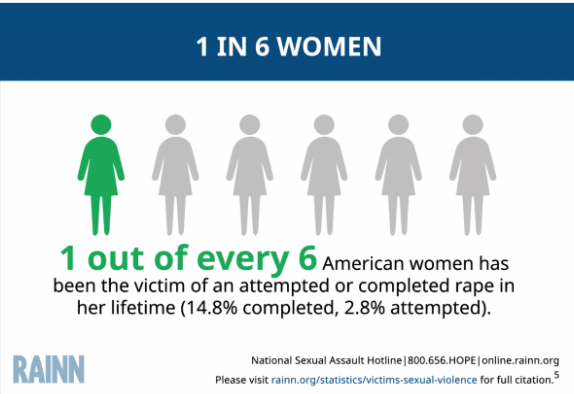BYU Anti-Human Trafficking Club and Students Against Sexual Assault joined together to host guest speakers on Awareness and Healing: Response to Sexual Assault and Crime in a Zoom meeting Thursday evening.
The two clubs share the mission of teaching club members to understand the situations of those who have dealt with sexual trauma. Guest speakers Javier Campos and Celeste Lojik encouraged students to understand and be a guiding hand to survivors of sexual assault and those involved in human trafficking.
Lojik is a professor in UVU’s criminal justice and law enforcement department with more than 10 years of nonprofit sector experience working with sexual violence and trafficking victims. She emphasized the importance of being aware of local and national sex trafficking issues and how aftercare is crucial to the recovery process.
To understand the quantity of children who are involved in sex-trafficking, Lojik compared the number of children sex-trafficked a year to the number of people it would take to fill three NFL sized stadiums.
She explained four main points one must know for helping with aftercare. First, the victim’s immediate physical and emotional needs must be met. Second, her medical care must be critically assessed. Third, her mental health care needs to be addressed — especially trauma-informed care. Fourth, she should receive guided and encouraged education and job training. Lojik said these four areas are critical for survivors of sex trafficking, and they need those who can support them and encourage them along the journey of recovery.
“The aftercare is such a crucial part in helping empower and actually helping someone break the chains and remove themselves from trafficking,” Lojik said.
Campos, a social worker and survivor of sexual assault himself, explicitly stated that the journey of recovery is different for every survivor but is always a painful process. He explained the healing process for victims of sexual assault can take years following the abuse because of associated stigmas of shame.
“Healing is so personal. Please remember that,” Campos said. He explained there are various kinds of therapy treatments that have been encouraged to overcome trauma but “that doesn’t mean it is going to work the same for every person. Everyone has their own journey and we have to be aware of that.”
He explained how common these experiences are for women, specifically. He referenced statistics from rainn.org which state one in six women experience sexual assault and a majority of victims are between the ages of 18-34. He said these numbers are shocking because of how common these experiences are, but students need to know what is going on so they can turn their awareness into understanding and help others in the healing process.
Lojik and Campos encouraged students to become more aware and learn about human trafficking happening in the world, but also learn how to help loved ones recovering from sexual abuse.






